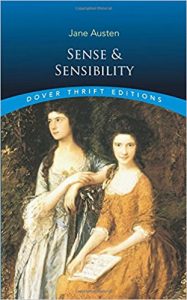by Naomi L. | May 31, 2017 | Blog, Creative Writing, What If? Writing Prompts |
After researching Memorial Day for my last two posts, I was inspired to write another set of “What If?” Writing Prompts. In keeping with the themes of war and the past, today’s batch features prompts in the history genre. See what historical tales you can create from these ideas, and feel free to add more of your own! Enjoy!
 What if… none of the major conflicts of history had been resolved with war?
What if… none of the major conflicts of history had been resolved with war?
What if… the territories of the British Empire had been conquered by another nation instead?
What if… the American Civil War had never happened?
What if… the atomic bombs had never been dropped on Hiroshima and Nagasaki?
What if… the American Civil Rights Movement of the ’50s and ’60s had failed?
Good luck writing some more historical tales!
If you have any “What If?” writing prompt suggestions (for any theme), please feel free to share them in the comments below. Ideas I like may be featured in future “What If?” posts, with full credit and a link to your blog (if you have one)! Also, if you’ve written a piece based on an idea you’ve found here, be sure to link back to the respective “What If?” post. I would love to see what you’ve done with the prompt! Thank you!
by Naomi L. | May 29, 2017 | Blog, Word of the Week |
Word: venerable
Pronunciation: VE-n(ə)r-ə-b(ə)l
Part of Speech: adjective
Definition: accorded a great deal of respect, especially because of age, wisdom, or character
Source: Oxford Dictionaries
It’s Memorial Day in the US, a time to remember and revere the brave men and women who have died while serving in the military, so for today’s Word of the Week, I felt it appropriate to feature a vocabulary word related to respect. I’ve used this word several times before to describe people and characters worthy of high esteem, which is why I consider it especially fitting for today. After all, there are few people more “venerable” than those willing to risk their lives for the love of their country!
A “venerable” person is someone who deserves great respect, particularly due to character, age, or wisdom. The word arose in late Middle English and comes from the Latin adjective venerabilis, meaning “respectable”. This adjective stems from the verb venerari, which means “to adore”.
In a more historical context, “venerable” is also used by the Catholic Church as “a title given to a deceased person who has attained a certain degree of sanctity but has not been fully beatified or canonized”, as well as by the Anglican Church as “a title given to an archdeacon”. Also worth noting is this adjective’s relation to the verb “venerate”, which means to “regard with great respect”. If you look up to certain people whose words and actions warrant reverence, you already have great inspiration for some “venerable” characters in your stories!
What are your thoughts on this word? Any suggestions for future “Word of the Week” featured words?
by Naomi L. | May 26, 2017 | J.C. Wolfe's Writing, Poetry |
Memories, old and new, of
Every life lost among the
Many brave souls who fight for an
Overwhelming love for their country
Remain in our hearts with our
Infinite gratitude for their service.
America remains free thanks to the
Lives of those who defend it!
Don’t forget the sacrifice of those who
Always gave everything for our nation.
Your lives will always be remembered!
Blessings to all you readers who have lost a loved one in military service. Have a peaceful Memorial Day weekend!
by Naomi L. | May 24, 2017 | Blog, Creative Writing, Off The Bookshelf |
Back in January, I finally returned to my Off The Bookshelf segment with a review of Jane Austen’s Pride and Prejudice. So today, I’d like to continue my reviews by writing about the other Austen novel I read last year. Since I’ve definitely been enjoying reading her literature, there was really only one novel I could review next: Sense and Sensibility!

Sense and Sensibility, by Jane Austen
Summary
Sense and Sensibility was Austen’s debut novel, first published in London in 1811. The story follows sisters Elinor and Marianne Dashwood as they adjust to their new life with their widowed mother and younger sister, who have all been left impoverished after Mr. Dashwood’s death. Over the course of the narrative, the sisters experience love, romance, and heartbreak, and eventually come to realize that they must learn to master the delicate balance between sense and sensibility in order to achieve happiness.
Review
Though I wouldn’t say I liked it as much as Pride and Prejudice, I enjoyed Sense and Sensibility for Austen’s realistic take on romance and manners, seasoned with all her classic humor and wit. Much like in the author’s more popular novel, the main characters of this story are faced with the challenge of finding love in a world where their low income and social status put them at a severe disadvantage. What really sets this novel apart from its successor, however, is the comparison it draws between the tempers of Elinor and Marianne, who each occupy one extreme of the romance-realism spectrum.
As the title suggests, the most prominent theme in Sense and Sensibility is the contrast between good sense and overt sensitivity (known as sensibility back then). As the eldest Dashwood sister, Elinor has the best judgment in her family and is highly skilled at exercising good sense and composure. Her younger sister Marianne, on the other hand, has no control over her emotions and no desire to keep her overly sensitive demeanor in check, favoring romantic idealism over etiquette. This contrast between their personalities makes for several interesting situations throughout the story, but in the end both sisters learn the same valuable lesson: too much sense or sensibility only leads to unhappiness. Only after Elinor learns to open her heart to sensibility and Marianne learns to temper her spontaneity with sense do they both achieve their happy endings.
Another major theme in the book is the role of money and social standing in romance. Though her novels all have happy endings, Jane Austen was never one to tell an idealistic love story; in her view, even the truest love isn’t immune to the real-world obstacle of low income. In the most notable example, Marianne and Willoughby seem like a perfect match: they’re both romantic and outspoken about their opinions on art and love, and spend so much time together that everyone assumes they’re engaged before they even say a word. Unfortunately, being one of the author’s well-known “hero caricatures”, the charming Willoughby couldn’t be anything less than a scoundrel, and sure enough, his expensive tastes coupled with Marianne’s poverty lead him to jilt her for a wealthy young lady he doesn’t love. Funnily enough, the same obstacle of wealth turns out to be a saving grace for Edward Ferrars, who for most of the story finds himself honor-bound to a loveless engagement only to be saved at the end from said commitment by his disinheritance from his mother, leaving him free to give his heart to Elinor after his conniving fiancé abandons him. From beginning to end, wherever there are love and romance, the shadow of money looms in the background.
Overall, Sense and Sensibility is an enjoyable read that shows less-than-idealistic romance in a humorous light, as well as an interesting dynamic of character development between two polar opposite sisters. Just as Marianne learns from Elinor that excessive emotion can destroy one’s life, Elinor learns from Marianne that excessive repression of emotion leads to intense suffering and risk of abandonment. Still, in true Austen fashion, both sisters achieve their happy endings by the story’s conclusion, finding comfortable lives with gentlemen who can provide them with all the security and emotional fulfillment they desire. In this way, from her very first novel, the author reveals that despite all the realistic obstacles in its way, romance can still thrive in a world plagued with social barriers, a hope not yet forgotten in the modern age.
Inspiration
Much like Pride and Prejudice, Sense and Sensibility offers a glimpse into the romantic and realistic elements of past life that have survived into the present. The novel also teaches a valuable lesson on the importance of both practicing good sense and being willingly sensitive, albeit a somewhat imbalanced one that favors sense. We shouldn’t give our emotions total control over our happiness, but we also shouldn’t be afraid to feel vulnerable in the pursuit of love. There are plenty of opportunities in life to be both sensible and sensitive; it’s all a matter of exercising the right judgment.
Though her novels often highlight the limitations placed on women in the society of her day, Jane Austen clearly had a way of demonstrating the strength that women have always had to succeed within their means. Because of that, I know I can always turn to one of her novels for inspiration on writing heroines with real personalities, issues, and aspirations. Whether you seek inspiration for historical fiction, realistic characters, or contrasting themes in human behavior, Sense and Sensibility is an excellent novel that warrants a place beside Pride and Prejudice on any Austen fan’s bookshelf.
by Naomi L. | May 22, 2017 | Blog, Word of the Week |
Word: prelude
Pronunciation: PRE-l(y)ood / PRAY-l(y)ood
Part of Speech: noun
Definition: an action or event serving as an introduction to something more important
Source: Oxford Dictionaries
Here’s a relatively common word that every writer should know. Sometimes when writing fiction, you may want to set up the world of your story before diving into the plot. In this case, a short introduction might be a good option to help you set the tone for the rest of your work. For writers and musicians especially, the “prelude” is a handy tool to keep in your arsenal!
A “prelude” is an event or action that serves as an introduction to something more important. The word arose in the mid 16th century and traces back through the French noun prélude to the Latin verb praeludere, meaning “to play beforehand”. This verb consists of the preposition prae “before” and the verb ludere “to play”.
In the context of art, a “prelude” is an introduction to a piece of music or literary work, such as an orchestral opening to an opera act or an introductory part of a poem. The word can also be used as a verb to mean “serve as a prelude or introduction to”. If you need to introduce important events or you like to include opening pieces in your stories or poetry (or have your characters do the same), “prelude” is a good word to know!
What are your thoughts on this word? Any suggestions for future “Word of the Week” featured words?
 What if… none of the major conflicts of history had been resolved with war?
What if… none of the major conflicts of history had been resolved with war?



Recent Comments